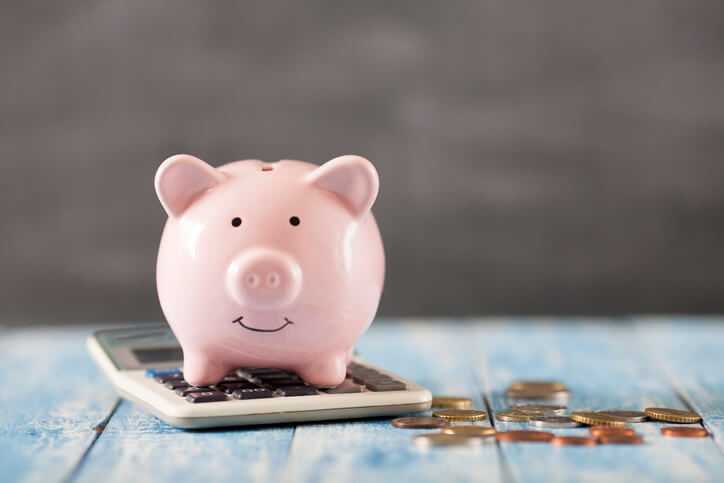Improve Your Credit Score Fast With a Quick Start Budget
If you’re striving to improve your credit score and overall financial health, a solid budget is an essential tool. A budget can help you save money to pay down debt, curb overspending and make sure no bills go unpaid—all of which can boost your credit score and brighten your financial future.
To many of us, putting together a budget is about as fun as visiting the dentist, but it doesn’t need to be such a pain. Check out our plan for a quick start budget—a surprisingly simple budget to help you efficiently meet your financial goals. We’ll also share some budgeting tips for how to stick to the plan you’ve created.

Budgeting Tips to Improve Your Credit Score
Step #1: Choose a tool
Before you start crunching the numbers, decide if you prefer to manage your budget with a spreadsheet or online. Choose the option you think will be easiest for you—but don’t stress too much, because the decision isn’t permanent. If you end up disliking the spreadsheet, for example, it’s easy enough to switch to an app once you’ve got a handle on your basic budget.
Step #2: Understand your cash flow
- Add up your income Record all the after-tax income you earn each month, starting with your salary and/or hourly wages, and adding in any other income from things like investments, Social Security checks and side hustles.
- Record your expenses Start with the obvious expenses, like your rent and gym membership, then factor in discretionary spending, like eating out and buying clothes. You should also include contributions to your savings account and debt payments as expense categories. Some expenses can fluctuate, like your weekly trip to the grocery store or your utility bill. For expenses like this, it can be helpful to look back over the past 6-12 months and calculate an average.
- Account for every dollar
When you compare your money coming in (income) with your money going out (expenses), every dollar should be counted. If your monthly after-tax income is $5,000, for example, the sum of your expenses should not exceed $5,000. If you only need $4,500 to cover your planned expenses, then you’ve just uncovered a piece of great news—you have room to contribute an extra $500 to paying down debt or saving each month. Keep adjusting until you know where each dollar of the $5,000 belongs. If your planned expenses are more than $5,000, find ways to cut back on spending or increase your income until the amount coming in matches the amount going out.
Step #3: Start tracking Here’s where you compare your budget plan with your financial reality. The concept is simple—track what money is coming in and going out. If you’re using a spreadsheet, you’ll need to compare your bank and credit card statements with your budget to see how your spending compares to what you allocated. Websites and apps can track this data for you, but you’ll still need to check for errors and account for cash payments.
This is the most crucial step, because it reveals the spending habits that may be knocking you off track each month—and gives you a chance to right the ship and improve your credit health. For example, you might be surprised that you burned through a month’s worth of entertainment budget in just two weeks. Knowing this, you can halt your entertainment spending for the rest of the month, or trim your eating-out budget to make up the difference.
Don’t wait until the end of the month to do this step. Diligent tracking is the key to making sure all bases are covered at the end of the month—so you can meet your goal of paying down a credit card, for example, and improving your credit score along the way.
Quick start budget: Tips for sticking to it
Setting up a budget with our quick-start method is easy—sticking to it, on the other hand, can be harder. Luckily, we’ve got you covered with some next-level budgeting tips.
- Try a different timeframe. Not everyone likes to think in terms of months. If 30 days is too long, try budgeting for each pay cycle, or in two-week chunks.
- Keep it simple. It can be tempting to create 45 different spending categories, but you might be better off with a simpler strategy where you can lump together multiple expenses under one “eating out” umbrella, for example.
- Focus on your goals. Whether you’re saving for a down payment on a house or striving to pay down high-interest-rate debt, put reminders of your financial goals in places you’ll see them often—say, the screensaver on your phone or a sticky note on your bathroom mirror.
- Leave room for fun. If your budget has no room for treats—however small—you’ll never stick to it. Leave room to go to the movies or hit up happy hour once in a while. By being realistic, you’re upping the chances that you’ll stick to the budget.
How a Budget Helps Your Credit Health
We all know a budget can help you manage your money and keep track of your spending, but how does that translate to better credit health?
For starters, a budget can help you avoid late payments. Payment history is the #1 factor that influences your credit score, and the record of a late payment stays on your credit report for seven years, so it’s essential that you pay on time, every time. When you build a budget, you’re aware of your monthly bills, which can help you stay on track of those payments. And sticking to that budget can help you avoid the end-of-the-month scramble to pay those bills.
A budget can also help you manage your credit utilization ratio and your total debt level, both of which are major contributors to your credit score. When you stick to your budget, you avoid overspending, which often leads to running up high credit card balances and can blow your utilization ratio out of the water. The process of building a budget also helps identify opportunities to save some extra cash, which you can allocate toward paying down any high-interest debt you have.
Lastly, your cash flow is an important factor to getting new credit—and a good budget is the ultimate tool for managing cash flow. In addition to your credit score, your ability to repay a new loan based on your income minus your debt and expenses can impact whether you are approved for new credit and how much you can borrow. If you don’t have much wiggle room to take on new debt, lenders may not approve you for more credit.
Learn more about improving your financial future with Upgrade’s Credit Health Insights. We’ll bring you tips on how to make a good credit score great, pay off debt quickly and improve your money habits. To get access to your free credit score and other credit monitoring tools, sign up for Upgrade’s Credit Health.


